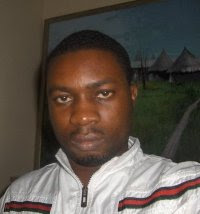The world football governing body seems to have removed the sleep from their eyes, poured themselves a fresh cup of coffee, and in a shocking turn of events, looks to be attempting some ‘governing’ as they’ve recently stated they’ll allow national associations the use of video footage when it comes to punishing diving and simulation.
In a statement released to the press recently, a FIFA spokesperson used clamorous phrases to describe their intent such as, “serious sanction”, “stamp out”, “deterrent”, and “right wrongs”, all pretty determined terminology being thrown around from the federation once deemed inept at making the big decisions needed for the betterment of the game.
In this somewhat welcoming turn of events, FIFA has changed their stance on the controversial topic from just a few years ago when the Scottish FA approached FIFA with a proposal to use video evidence for these such circumstances. Scotland’s proposal was then turned down on the basis that it was against the existing rules of football. Credit to FIFA though who’ve now allowed the Australian Federation to punish two players, Perth Glory striker Michael Baird and Central Coast midfielder Patricio Perez, and have subsequently banned them for two matches for simulation and gaining penalties.
These new developments in the use of video technology go against article 79 of the official FIFA disciplinary code which states that the disciplinary decisions taken by the ref on the field of play during a match are final. If you connect the dots, any such occurance or violation spotted by video replay after the ending of a match and then punished for would be against FIFA’s code. An interesting and progressive step forward by FIFA.
As it pertains to the Aussies, the Australian national association has cited UEFA’s stance on former Arsenal striker Eduardo in a Champions League qualifier against Celtic in 2009 as precedence for the infraction. Eduardo’s dive to win a penalty in real time was difficult to catch in the heat of the moment. Yet video replays blatantly proved Celtic keeper Artur Boruc avoided all contact with Eduardo who went to ground to deceive the referee.
In this instance of Arseanl v Celtic, the charge against Eduardo was based on Article 10 paragraph 1c of the UEFA disciplinary regulations which states that players can be suspended for purposely trying to deceive a match official in attempts to make said official make an incorrect decision.
In the Eduardo example and now in the case of the Australian club players, FIFA have made the right decision and an important step forward. Football fans will still want to see progress made in goal-line technology and other aspects of the game that will benefit its overall appearance across the world, but for now, FIFA have taken a step in the right direction.


No comments:
Post a Comment